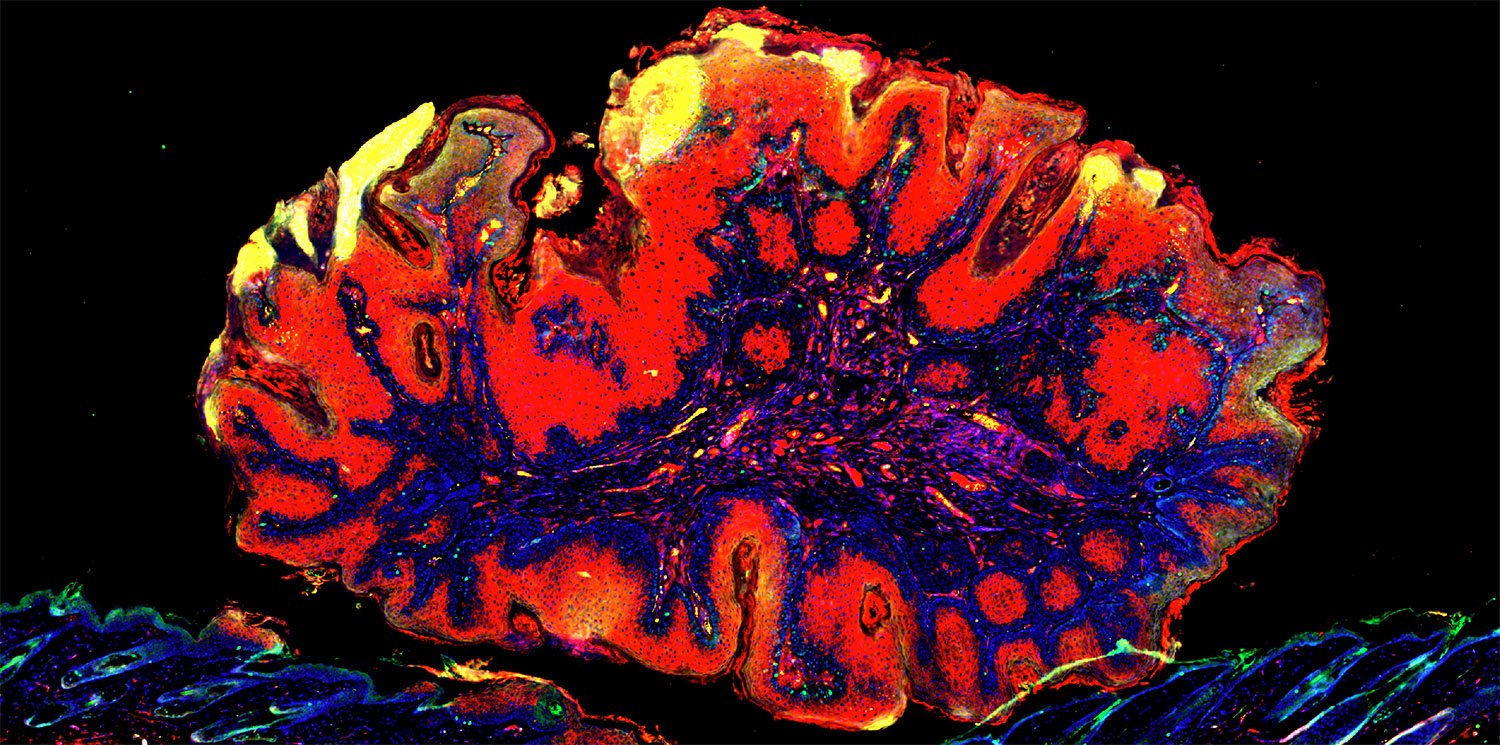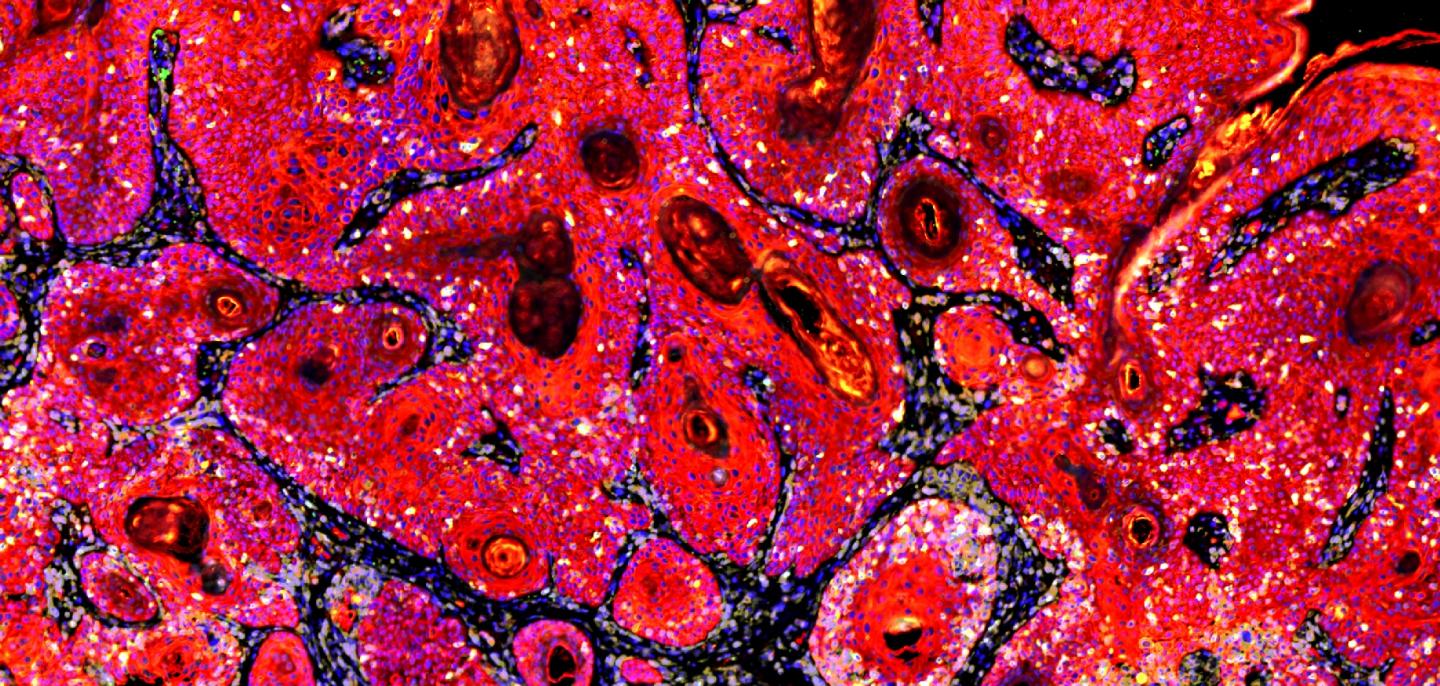Viruses get a bad rap as potential cancer-causers, but at least one class of viruses that commonly live on human skin – so-called “low-risk” human papillomaviruses – appear to play an unwitting role in protecting us against skin cancer according to a new study published in Nature.
Patients who have immune systems that are suppressed from diseases or medical therapy are at greatly increased risk for cancers linked to viral infections, particularly squamous cell carcinoma (SCC) of the skin. Although multiple studies have tried to show a link between human papillomavirus (HPV) infections and SCC, none have been able to show that HPVs actually drive the development of these common skin cancers, say Shawn Demehri, MD, PhD investigator in the Center for Cancer Immunology at Massachusetts General Hospital (MGH) department of Dermatology and the MGH Cancer Center, and colleagues.

Instead, working with experimental models and tissue samples from human skin cancer, they found that the presence of “commensal” papillomaviruses – low-risk forms of HPV that dwell on the skin of a large majority of people – appears to have an indirect protective rather than harmful effects against SCC.
“This is the first evidence that commensal viruses could have beneficial health effects both in experimental models and also in humans, and it turns out that this beneficial effect has to do with cancer protection. The role of these commensal viruses, in this case papillomaviruses, is to induce immunity that then is protecting patients from skin cancers,” he says.
[ad_336]
In patients with suppressed immune systems, the loss of immunity rather than the cancer-causing effects of HPVs is the reason for the more than 100-fold increase in risk for skin cancer, the investigators say.
Their findings suggest a novel method for preventing skin cancer using a vaccine based on T cells, the essential immune-system cells that identify other cells as abnormal or foreign and mark them for destruction.
“T cell-based vaccines against commensal HPVs may provide an innovative approach to boost this antiviral immunity in the skin and help prevent warts and skin cancers in high-risk populations,” the researchers write.
They note that augmenting natural immunity against HPV immunity may further improve the effectiveness of immunotherapy against SCC using immune checkpoint inhibitors, drugs that take the brakes off the immune system and allow it to recognize and destroy cancerous cells.

There are more than 100 known strains of HPV, of which only 12 or so are classified as high risk, with some types linked to risk for cancers of the cervix, vagina, vulva, penis, and anus, and others linked to cancers of the head, neck, and oral cavity. Other types, such as those studied by Demehri and colleagues, are common hitchhikers in and on the human body, and are considered to carry low risk for causing serious diseases.
[rand_post]
Demehri and colleagues conducted experiments with mouse models showing that those with intact immune systems and natural immunity against papillomaviruses, as well as mice that had adaptive immunity from transfer of T cells, were protected against skin cancer when exposed to ultraviolet light or chemicals known to cause skin cancer. They also tested human skin cancer samples for the presence and activity of 25 known commensal low-risk HPVs and found that viral activity and viral load were significantly reduced in the skin cancers compared with adjacent normal skin, “suggesting a strong immune selection against virus-positive malignant cells.”